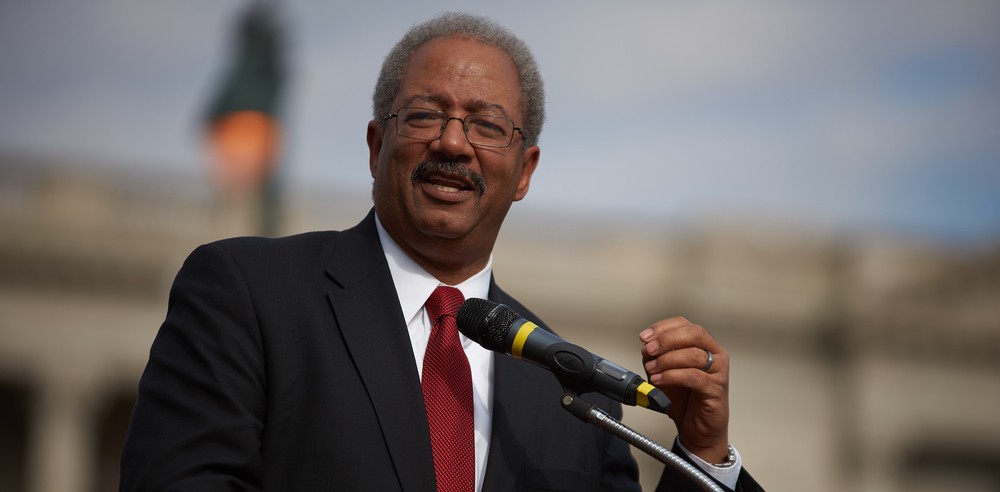Congressman Chaka Fattah Meets with Amarantus to Discuss Brain Research

 Congressman Chaka Fattah recently met with Amarantus, a biotechnology firm specializing in discovering and developing treatments and diagnostics for Alzheimer’s disease and other degenerative brain conditions, to discuss ongoing and future neurologic research strategies.
Congressman Chaka Fattah recently met with Amarantus, a biotechnology firm specializing in discovering and developing treatments and diagnostics for Alzheimer’s disease and other degenerative brain conditions, to discuss ongoing and future neurologic research strategies.
Gerald Commissiong, the CEO of Amarantus, and Robert Farrell, the CFO, had briefed Congressman Fattah on a newly-signed contract between the company and Georgetown University for 6 patent rights covering serological biomarkers for Alzheimer’s disease. These rights are jointly owned by the University of Rochester and Georgetown.
Congressman Fattah explained in a press release: “I continue to be impressed by the advanced research happening within the neuroscience field. This new agreement is an important milestone in Alzheimer’s diagnostic development with the potential to help recognize individuals who may be at-risk for Alzheimer’s and ultimately develop the information necessary to better detect and diagnose the disease. Through the Fattah Neuroscience Initiative, I look forward to continuing to work with public and private entities to ensure our country is focused on the research and development that will lead to breakthroughs in the field.”
The relevance of genomic testing in the timely and effective management of Alzheimer’s disease, and the constantly growing need for increased federal commitment to support research and development on the disease were also underscored during the briefing. According to Congressman Chaka Fattah’s office, Alzheimer’s disease is ranked third among the leading causes of death in the United States. More than 5.4 million people suffer from this neurodegenerative disease, and this number is predicted to increase along with the climb in the average American’s lifespan.
Congressman Fattah has led several efforts to increase public funding to support brain research. “It is a privilege to join as a caucus co-chair and work within Congress to advocate for policies, research, and funding that will advance our efforts to fight Alzheimer’s disease,” he said. “Degenerative diseases are a top priority in the neuroscience field and the need for action on Alzheimer’s grows by the day as the United States and nations around the world confront its crippling social and economic effects. I thank my fellow co-chairs for their longstanding efforts, and look forward to making more progress on this issue in the 114th Congress.”






